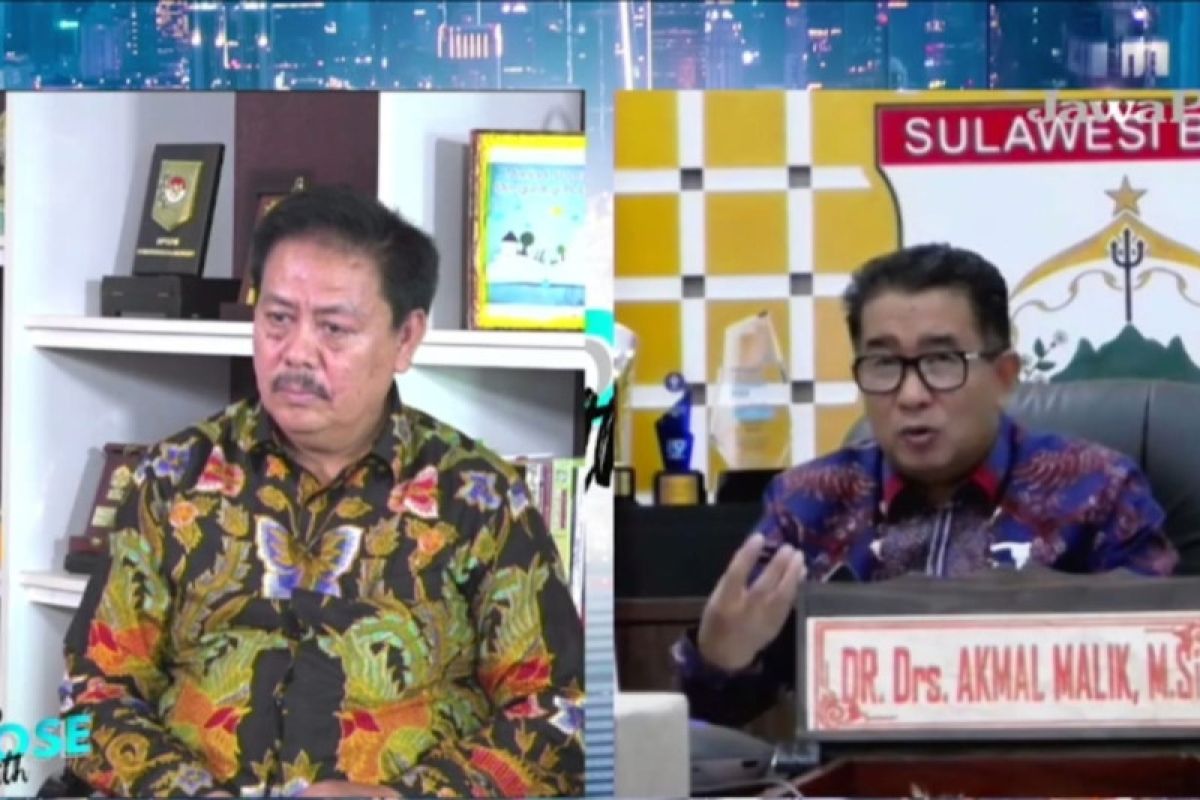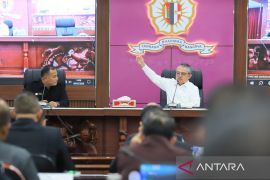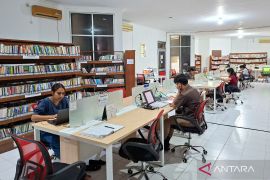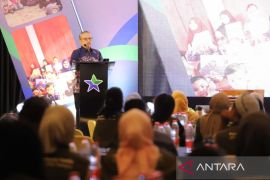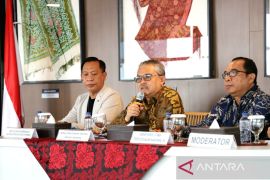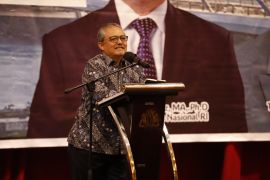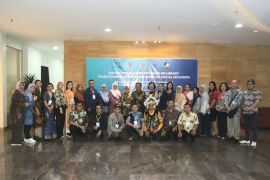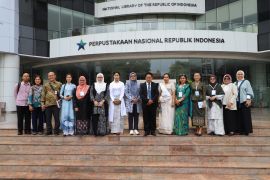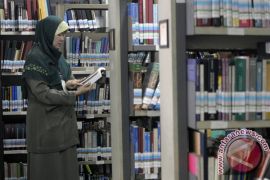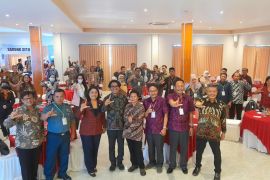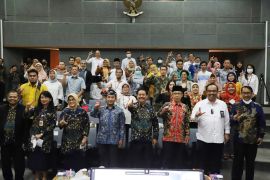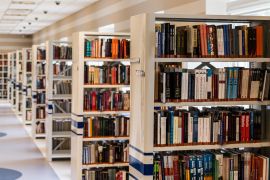The goal of the program is to prevent libraries from becoming ivory towers. The people should feel the existence and benefits of libraries, such as by encouraging the improvement of the people's prosperity.
Head of the National Library Muhammad Syarif Bando explained on Saturday that the goal of digital library transformation was to expedite the process to produce quality human resources having creativity in the field of technology.
The program targets the marginalized population, such as people living in a slum or poor area, small farmers, workers, micro, small and medium enterprises (MSMEs), as well as housewives.
"Through this program, the people are given training to improve their skills through applied books that exist in libraries," he explained.
Related news: National Library awards E Java Governor, Agriculture Minister
Skills training for the marginalized population became very important since they are trapped in poverty throughout this time due to four factors: their lack of knowledge, lack of innovation and creativity, lack of access to capital, and their culture that prioritizes speaking rather than reading.
For capital access, the government has, in fact, prepared the people's business credit (KUR) in large quantity, Bando noted.
However, when the people do not have the skills to produce goods and services, the KUR would not be utilized in an optimal manner. Hence, improving the people's skills became important.
To this end, libraries play a role in improving the people's skills by providing books on applied knowledge.
When it comes to the village level, the National Library head expects that Village-Owned Enterprises (BUMDes) can collaborate in improving the people's skills through books on applied knowledge that libraries provide.
"As a result, the people can easily create goods and services," he explained.
In implementing this Social-Inclusion Based Library Transformation Program, the National Library never guided the people into choosing certain skills. In its place, libraries adjust themselves to the people's economic options based on existing potentials.
"We will contribute to optimize with the entire capability to facilitate relevant sources of information," he remarked.
The TPBIS, undertaken at libraries at the level of province, district or city as well as village, is deemed to be effective and the people feel its benefit.
Related news: National Library to honor activists helping cultivate love of reading
Improving life quality
The TPBIS is a library service approach committed to improving the living quality and prosperity of library users.
Since the 2018-2022 period, the TPBIS program has been implemented with assistance to 34 provinces, 399 districts or cities, and 3,535 villages as well as technical guidance to 1,804 regional library staff and 2,196 village library managers.
During this time period, the program has also trained 79 master trainers and 415 regional facilitators.
The program not only develops the quality of human resources but also provides physical aid in the form of ready-to-use collection assistance, book shelves as well as information and communication technology (ICT) hardware.
For four years, the TPBIS has reached 2,133,918 people, who participated in 85,776 community engagement activities in the library.
The statistics indicated the people's enthusiasm toward the program. Many people feel the positive impact of this program in the efforts to improve their quality of life and prosperity.
According to Bando, Indonesia has an abundance of natural resources, but it has not been managed optimally. To this end, the people should be gifted with innovation, creativity, and digital accessibility to boost their knowledge.
Related news: Surabaya should be called parameter of literacy city: National Library
Knowledge transfer
As time changes, the role of libraries is not just about collecting books. The library's paradigm has changed into prioritizing knowledge transfer to the people.
The paradigm that libraries have established is 10-percent collection management, 20-percent knowledge management, and 70-percent knowledge transfer.
The implementation of this knowledge transfer is very important given that, as UNESCO has stated, the final bench for those no longer in formal education is library.
"Thus, for villagers, 90 percent of who do not pursue education at universities, on average, can improve their skills by coming to libraries," he noted.
Meanwhile, Acting Governor of West Sumatra Akmal Malik is in agreement with what the head of the National Library has conveyed concerning inclusion-based library transformation.
"It is about how to present knowledge transformation to the people, who have not received access to digital-based knowledge," he explained.
This results in people in villages in West Sumatra encountering difficulties in receiving knowledge to improve themselves.
"There are two types of people here, namely agrarian and maritime. The question is how to make (knowledge) into added value in improving skills, innovations, and creativity," he remarked.
Inclusion-based literacy is needed by people in villages. This program is the correct step in developing skills for farmers, fishermen, and housewives.
Related news: Mother's Day expected to inspire women to participate in development
Related news: Banking industry must be more supportive of MSMEs development: Jokowi
Editor: Fardah Assegaf
Copyright © ANTARA 2022
